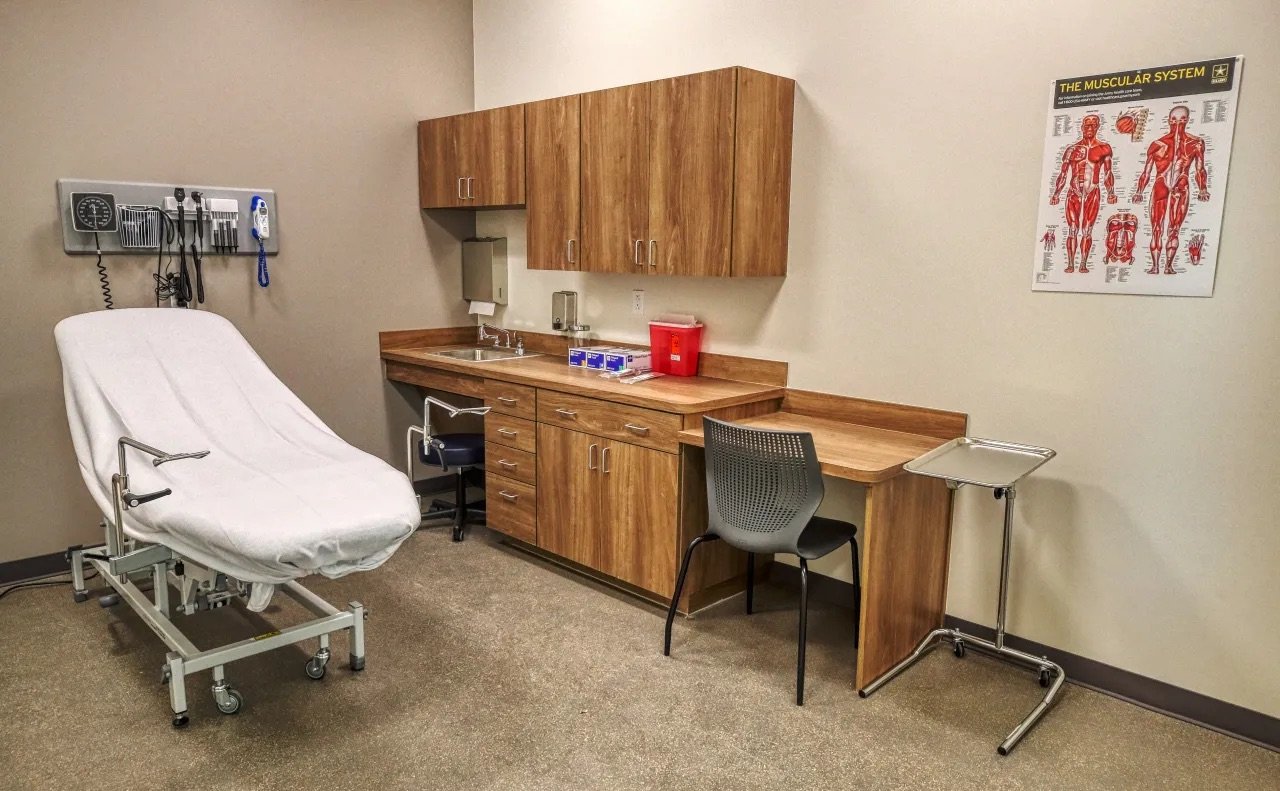OMS-III Course Overview
All students at OCOM will complete the following 4-week rotations. In third year, all students will complete a Milestone 1 course, after which they will engage in nine (9) required core rotations and the following longitudinal courses: Osteopathic Principles and Practice, and Learning Consolidation.
Internal Medicine
4 weeks
This rotation is designed to immerse the students in the specialty of internal medicine. As a foundational experience, student educational emphasis is placed on pathophysiology of disease and other concepts introduced during the first two years of medical school. In the clinical setting, students learn to conduct a hypothesis-driven history and physical examination. The great majority of the rotation is spent in the inpatient setting, with the rest in outpatient or specialty services.
This experience exposes students to diverse pathologies and patient populations as are the environment of the training institution. Students will work closely with faculty and participate in all educational activities sponsored by the affiliate partner or clinical faculty.
Family Medicine
4 weeks
This rotation is designed to provide the student with an understanding of primary care by integrating didactic knowledge and clinical experiences.The family medicine rotation is an introduction to either inpatient or outpatient primary care medicine. Students care for patients in every stage of life from pregnancy, infancy, childhood through adult and senior groups. Medical students see patients for routine health maintenance, management of chronic medical conditions, acute urgent issues, and a variety of other presentations which provides students with the educational confidence essential for primary care. Students interact with people from a wide variety of communities and learn to approach clinical issues utilizing the biopsychosocial model in either or both the inpatient and outpatient settings. There is no category of individual patient or clinical situation that does not fall into the spectrum of family medicine. Additionally, students gain an appreciation for family medicine specialty, as they engage in a variety of clinical presentations and diagnosis.
Obstetrics and Gynecology
4 weeks
This rotation is designed to expose students to clinical experiences in OB/GYN. Students will participate in the labor, delivery, and postpartum care of patients. They will also observe and participate in surgery, pre- and postoperative care, and actively participate in daily inpatient rounds on obstetric and gynecologic patients.
General Surgery
4 weeks
This core rotations experience is meant to give students a rich exposure to general surgery practice in academic as well as community surgical settings. Students will learn and acquire clinical skills that are essential for providing care to the surgical patient care (pre-operative, intraoperative, and post-operative). In the preoperative phase, students learn to assess surgical patients by taking history and physicals for a wide variety of surgical pathologies. Exposure to intra-operative care is an excellent opportunity for students to acquire basic surgical skills such as knot tying and skin closure. This valuable foundational experience teaches students the essentials of intraoperative care while reinforcing scrub techniques in various operative procedures, including laparoscopic and open surgery. It also reinforces students' understanding of surgical practice.
Psychiatry
4 weeks
The psychiatry rotation aims to prepare medical students to recognize, diagnose, and care for patients with psychiatric disorders encountered in most medical practices. Students will be assigned to work with interdisciplinary teams, which will aid the student in meeting course objectives. Students are exposed to mental disorders ranging from mild cases to individual cases where patients suffer from severe mental disorders. Students are instructed in the diagnosis and management of major syndromes. Psychiatric medicine rotation is a broad experience whereby students get a better understanding of the treatment of a patient utilizing the psychobiosocial model that not only focuses on pharmacology, but also utilizes other therapeutic modalities.Students are expected to engage in didactics in psychiatry ranging from treatment , therapy, psychopharmacology all will appreciating the challenges of treating mental illness.
Pediatrics
4 weeks
This rotation provides the students with the potential of two different subspecialties, inpatient rotations and outpatient ambulatory rotations. This diverse exposure will allow students to develop skills in diagnosing and managing patient presentations and clinical situations, including examinations, routine screening, vaccinations/preventive care, and addressing health care delivery concerns.
Surgical Subspecialty
4 weeks
The clinical objective of the Surgery Subspecialty rotation is to give the students exposure and clinical experience in the practice of this subspecialty. This clinical rotation help students develop the problem solving skills necessary to understand the pathophysiology and surgical management of both simple and complex medical problems. Students enjoy the unique experience of being in the operating room as they develop an understanding of medical problems warranting surgical intervention. In addition the student is exposed to those illnesses which require urgent immediate surgical intervention as students experience the complex decision making required to determine when and when not to operate.
Internal Medicine Subspecialty
4 weeks
This clinical rotation experience combines the basic science knowledge students acquire in their pre-medical education with their skills in history taking and physical diagnosis. Students will learn to apply these integrated skills in a clinical setting. During the rotation, students will gain exposure to a broad spectrum of subspecialty medicine and the unique presentations of adult illnesses requiring subspecialty intervention. The rotation is structured to provide a detailed understanding of healthcare delivery associated with these subspecialties.
Residency Planning and Research
4 weeks
